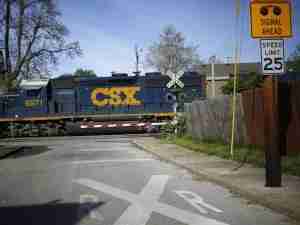- Fuel is one of the highest costs in the trucking industry, amounting to as much as 40% of a trucking company's expensesi. Moreover, natural gas can cost up to 30% less than diesel, and according to the International Energy Agency, this gap should remain for many years to comeii.
- Natural gas engines allow trucking companies to reduce their environmental footprint because natural gas emits up to 25% less greenhouse gas (GHG) than dieseliii.
- The transportation sector is the largest emitter of GHG in Quebec , amounting to 44.7% of the province's total emissions, according to the Minister of Sustainable Development, Environment and the Fight against Climate Changeiv. More than one-third of these emissions can be attributed to merchandise road transportation with its heavy-duty diesel-powered vehicles, it has said.
GE Capital, Canada and Gaz Métro Join Forces to Accelerate Trucking Industry’s Move to Natural Gas
By: GE CAPITAL CANADA | Jul 06 2015 at 08:00 AM | Intermodal
MONTREAL - GE Capital, Canada and Gaz Métro Transport Solutions (GMTS), a subsidiary of Gaz Métro, announced today the signing of a strategic agreement that will facilitate the trucking industry's adoption of natural gas as a fuel in Eastern Canada . GE Capital has been providing wholesale and retail financing to the country's commercial trucking sector for 35 years. Since its creation in 2010, GMTS has become a leader in the alternative fuels space in Quebec , both for the advisory role it provides to companies and for its deployment of natural gas refueling stations.
Under this agreement, fleet operators will work with GMTS for natural gas supply and purchase and, separately, with GE Capital to secure loans or leases for natural gas vehicles (NGVs). NGVs that are eligible under this agreement use either compressed natural gas (CNG) or liquefied natural gas (LNG).
"As someone with nearly a decade of experience in the transportation industry, I understand how critical it is for fleet operators to reduce their fuel costs. To remain competitive, they need to cut 3%-5% annually just to keep up with the market," said Véronique Haché, strategic initiative leader for natural gas vehicles at GE Capital. "Transitioning to natural gas is a smart way to diversify their fuel portfolios and reduce those costs. Through this agreement, we're giving trucking company leaders the financial motivation to make the shift from diesel to nat-gas."
"This agreement reinforces GMTS's turn-key approach by adding a financial partner to accompany the fleet operators in their transition to natural gas," said Luc Génier, president of the board of directors of GMTS. "We are confident that combining our respective expertise will have a positive effect on the adoption of natural gas as a fuel for the trucking industry in Eastern Canada ."
Some other important drivers of the transition to natural gas:
The Blue Road







